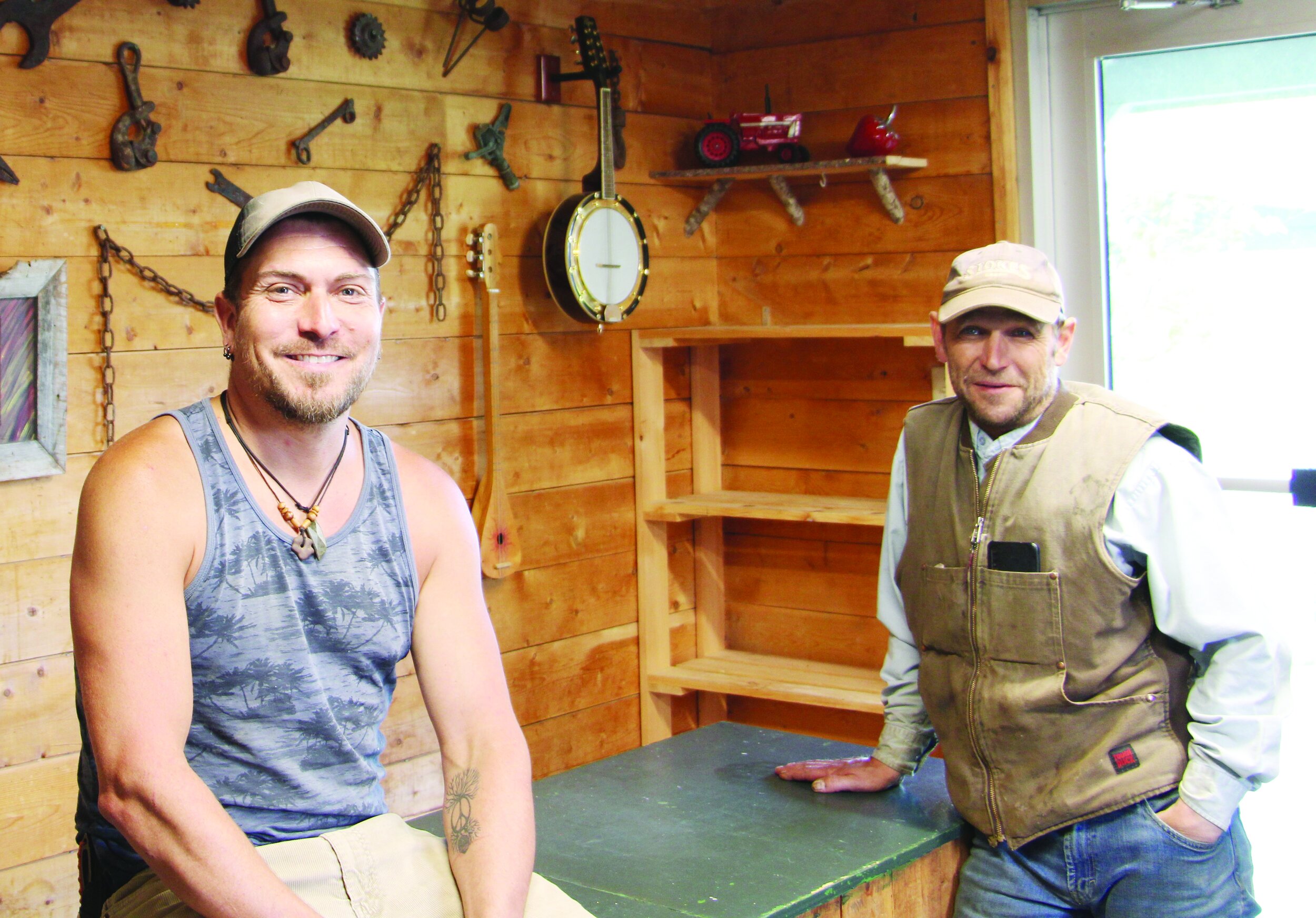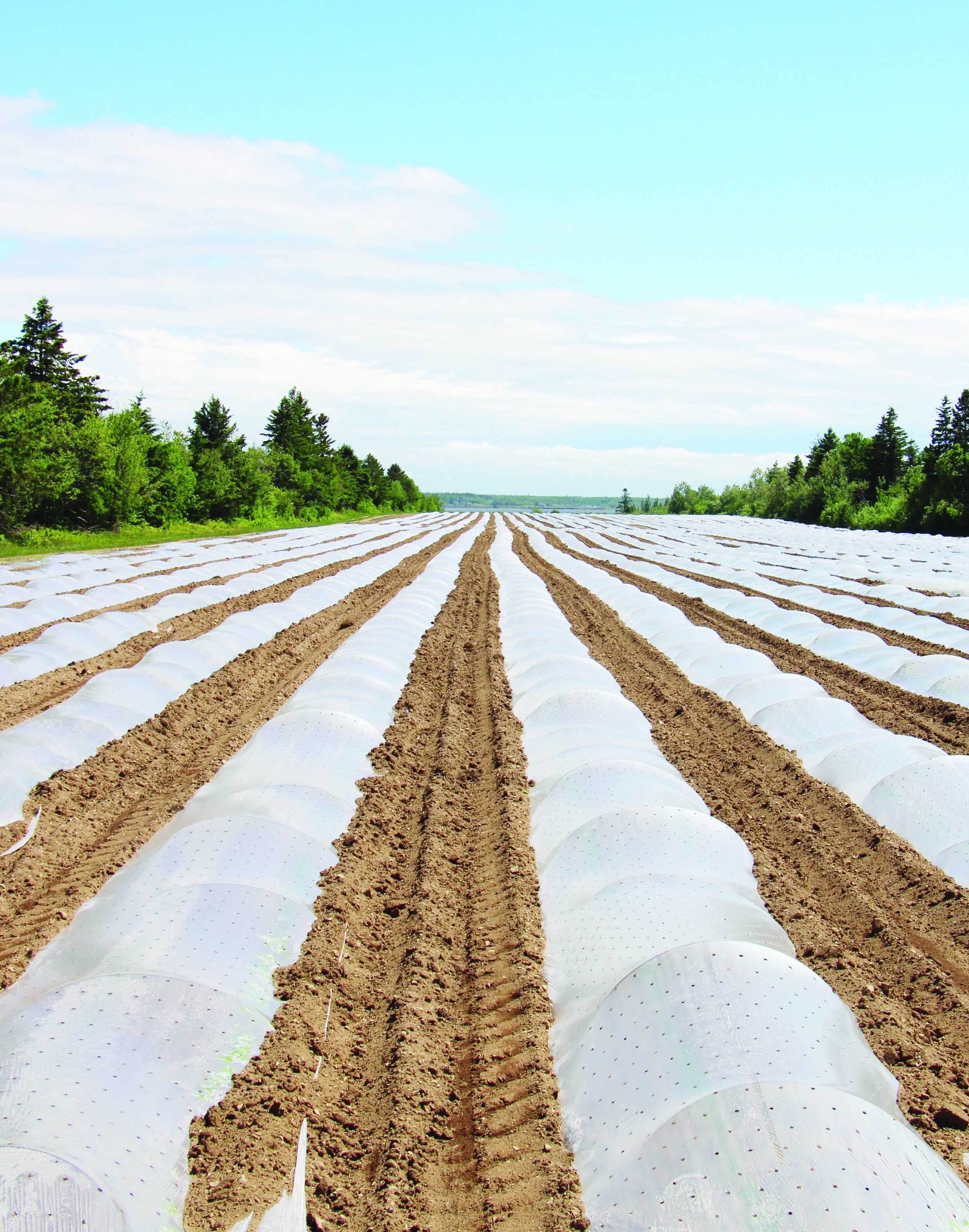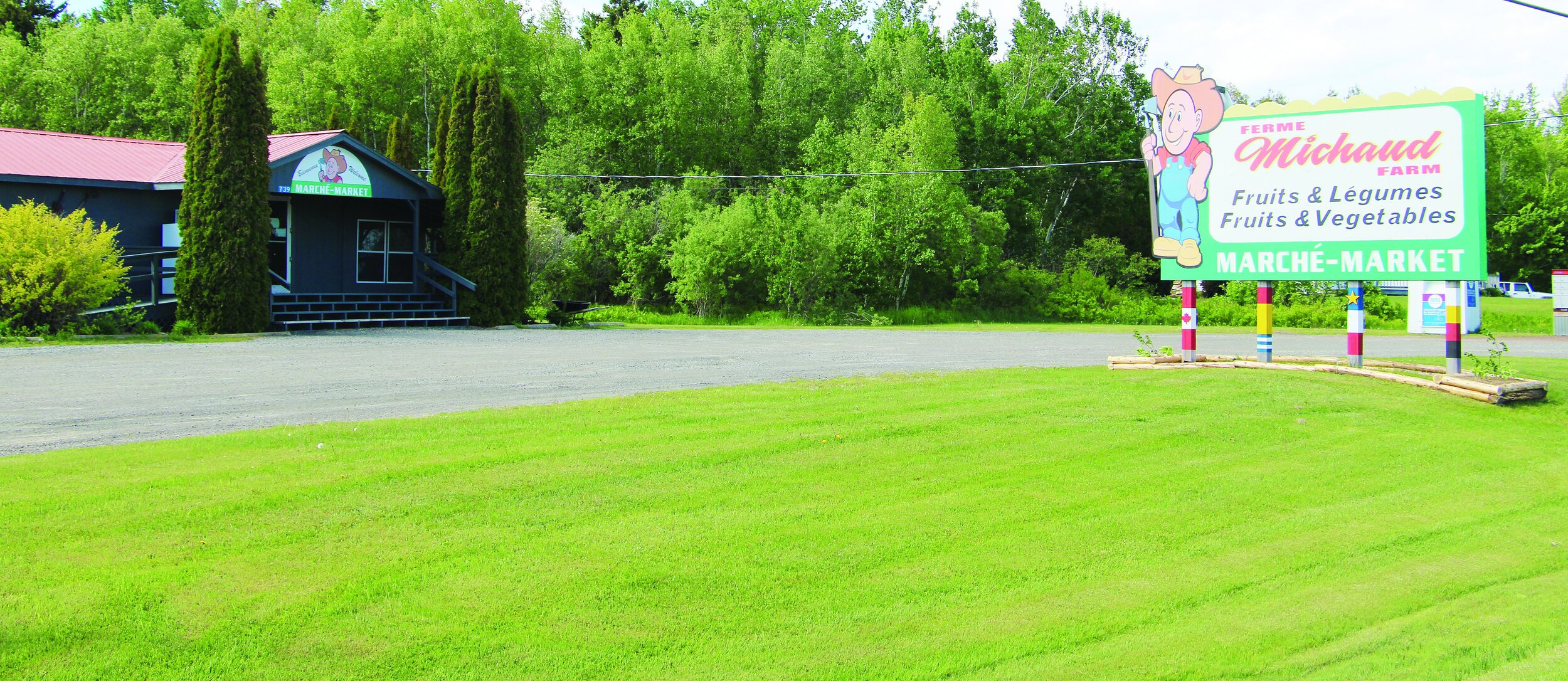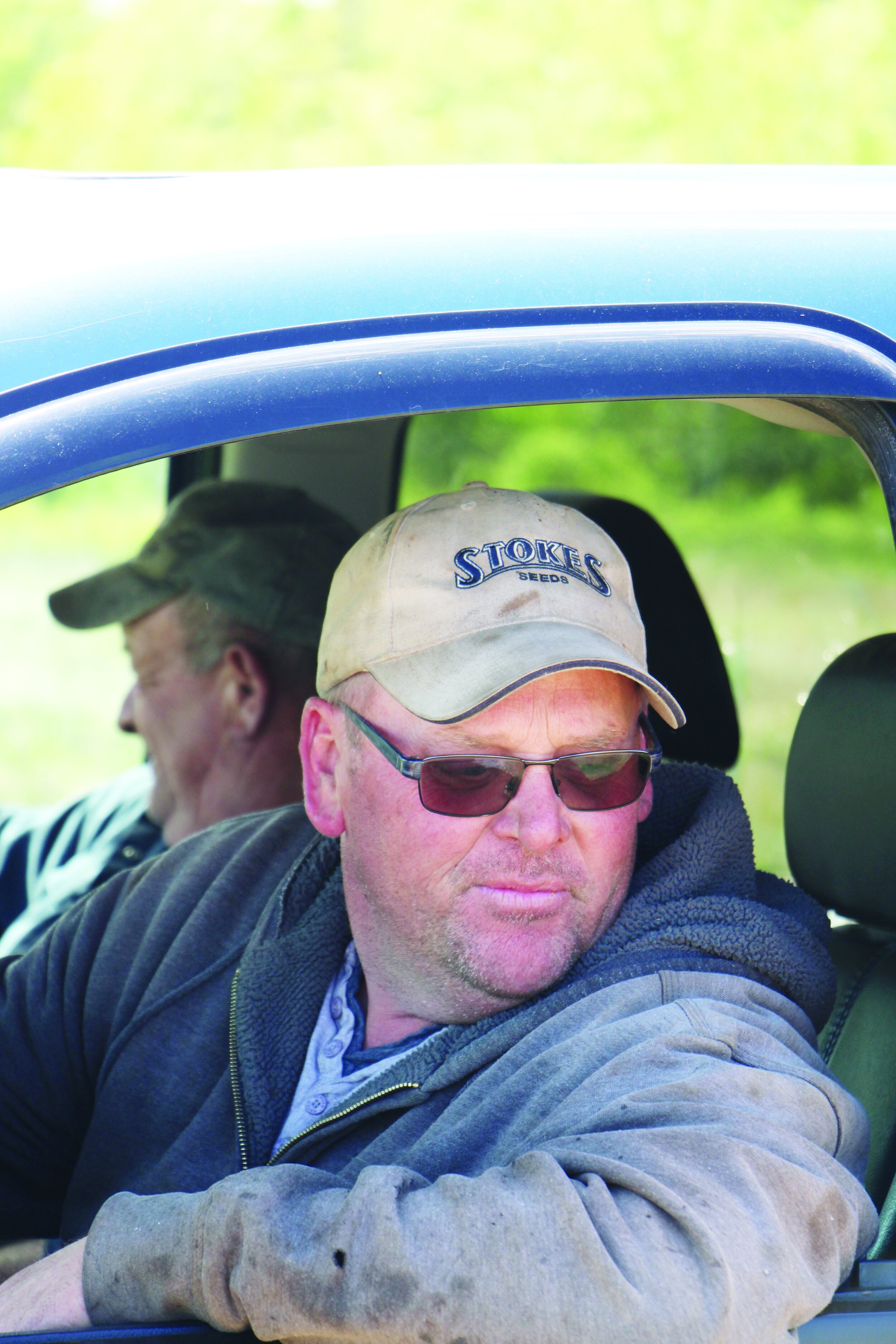N.B. farm adds pandemic preparedness to lengthy to-do list
/by George Fullerton
Meeting COVID-19 protocols adds another demanding element to management at Michaud Farm in Bouctouche, N.B.
The vegetable and soft fruit operation on the shores of Bouctouche Bay in eastern New Brunswick includes three managing partners, around eight local employees, and eight temporary workers from Mexico in the high season.
Since March, Michaud Farm has implemented work guidelines regarding COVID-19, including protocols for securing temporary foreign workers. More recently, with assistance from WorkSafeNB, they’ve been formalizing a work safety program and safety guidelines for consumers visiting their on-farm market.
Christian Michaud grew up on the family vegetable and potato farm. In 2013, Michaud and his business partners André (Bud) Allain and François (Frank) Lavigne bought out Michaud’s parents and expanded production.
Allain had worked on the Michaud farm for about 20 years prior to becoming a business partner. According to Michaud, Lavigne came to work on the farm in the spring of 2013 and by autumn had become a partner.
“Having three partners provides a good balance for making decisions,” said Michaud. “We each have areas of expertise, but we all pitch in wherever needed. Frank focuses on human resources, which now includes COVID issues. André looks after mechanical equipment. And I am the field guy.”
PLENTY OF VARIETY
The main farm is 600 acres, about half of which is cleared. They rent and trade other farmland.
This year, production includes 50 acres of string beans, 38 acres of Sweet corn, 12 acres of potatoes, 10 acres of strawberries, four acres of carrots, three acres of peas, three acres of beets, and four acres planted to a combination of pumpkins, squash, cucumbers, and sunflowers.
Michaud Farm makes extensive use of staggered planting to extend the harvest.
The partners regularly experiment with new crops and varieties. For example, they’ve planted 1.5 acres of asparagus, which they expect to begin harvesting in a year or two.
“We will look at and try any crop as long as it makes sense to grow it in our climate and if we think consumers will want it,” said Michaud. “We are continually trying new varieties, especially with beans and Sweet corn. We have many varieties of Sweet corn in our current operation, and only two varieties have been in our operation for more than 10 years.”
The home farm consists of a number of former granted properties. When the properties were originally granted, they were laid out long and narrow to allow several property owners access to the water, which was critical for transportation at the time. Michaud said they’ve maintained those original property lines. The result is fields that are long and narrow with forested edges, which help reduce wind erosion.
“Our soils are very sandy and light, and they will dry out very quickly,” said Michaud. “Trees shelter the fields from the wind. We use irrigation extensively, sourcing water from several ponds.”
The soil is tested every two to three years and the tests indicate whether or not lime is needed.
“Historically, a lot of our land had ground mussel shells spread on it as a pH enhancement,” said Michaud. “It takes a long time for the mussel shells to break down, so we have a continuous addition to soils, but we also add agricultural lime to make sure our pH is in good balance for production.”
PREP AND PLANTING
Land preparation and planting gets underway in May. Potatoes are green sprouted in the warehouse with heat and light management, and row covers are used to protect them against frost and to enhance early growth. Most other crops on the farm are planted in a plastic mulch and/or are protected by row covers.
Michaud said that while plastic mulch and row covers are expensive to purchase and install, they are necessary to meet production and marketing goals.
Cropping follows a rotational plan, which includes Winter rye as a cover crop following harvest. The rye holds the soil and produces grain for sale and straw for winter mulching of strawberries. Plowing down a portion of the rye adds organic matter and builds soil microbial life.
About 30 percent of the farm’s produce is sold from the on-farm market. Produce is also wholesaled to major supermarket chains. And resellers market Michaud Farm produce at the Dieppe and Bouctouche farmers’ markets. A portion of the strawberry production is marketed as a U-pick.
Typical mornings start with the three partners meeting.
“We always have a long list and we focus on the most important time sensitive (items),” said Michaud.
Lavigne said that they always come out of their meeting with a good plan for the day and then they adjust to compensate for the inevitable problems that arise from weather, equipment breakdowns, and other challenges common to farming. Eventually, the work gets done.
MEXICAN WORKERS
In 2019, Michaud Farm hired temporary foreign workers from Mexico for the first time.
“We knew that because of the local labour situation, that hiring temporary foreign workers was a matter of when and not if,” said Michaud. “It had become increasingly difficult to hire enough local people to run our operation. We had purchased a house close to our warehouse and shop because we figured we would need it for those workers. We were very happy with the results of the first year. But 2020 was a different story.”
On April 28, the New Brunswick government blocked temporary foreign workers from entering the province. But lobbying by employers and farm organizations – and the government’s realization that New Brunswickers weren’t going to take on most agriculture and fish processing jobs – resulted in temporary foreign workers being allowed into the province again as of May 29. Employers are required to implement pandemic-related rules, including a 14-day isolation period and testing prior to work.
“The COVID-19 pandemic has brought a lot of changes around how we operate day to day in addition to getting our foreign workers in and ready to go to work,” said Lavigne.
He and his office staff have worked with the government to prepare a plan for physical distancing, sanitizing trucks and equipment, and working on grading and packaging lines.
“We invited government officials to visit and help us outline what protocols we had to implement,” said Lavigne. “After the consultation, we figured we could maintain physical distancing in most of our work areas, but after consideration, we have decided to build a lot of barriers to give us the extra protection. We figure that the barriers would also serve us all by reminding us that physical distancing is important and simply the way we live and work.”
And that’s not all.
“We have put sanitizing kits in every vehicle and require the operator to sanitize the cab at the end of the workday,” added Lavigne. “We have also made masks available for workers when distancing is not an option in truck cabs.”
The partners also planned to install barriers in their farm market, have separate entrance and exit doors for customers, and hand sanitizer available.
SERVING INDUSTRY
Michaud served on the Agricultural Alliance of New Brunswick (AANB) board of directors from 2013-19, which included a stint as president from 2018-19.
He said working with other board members and dedicated staff members made the experience positive.
“It is very important that agriculture has a strong voice to represent the industry, in particular when working with government,” said Michaud, adding that a good example of the AANB’s work was its recent efforts lobbying the provincial government to allow temporary foreign workers back into New Brunswick. “Participating in farm organizations is demanding to a certain point, and ultimately, very rewarding.”











